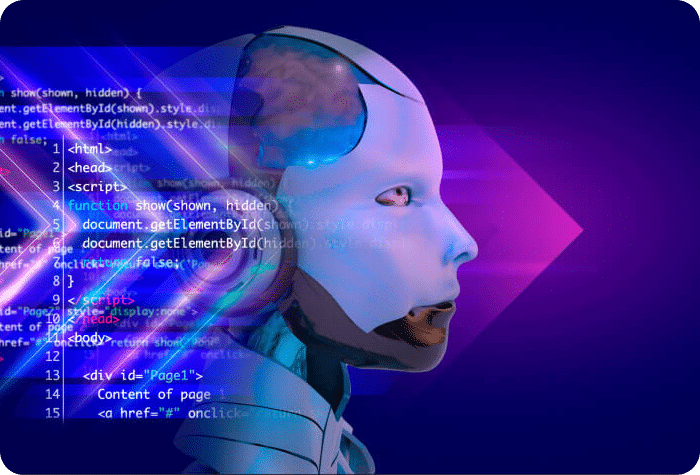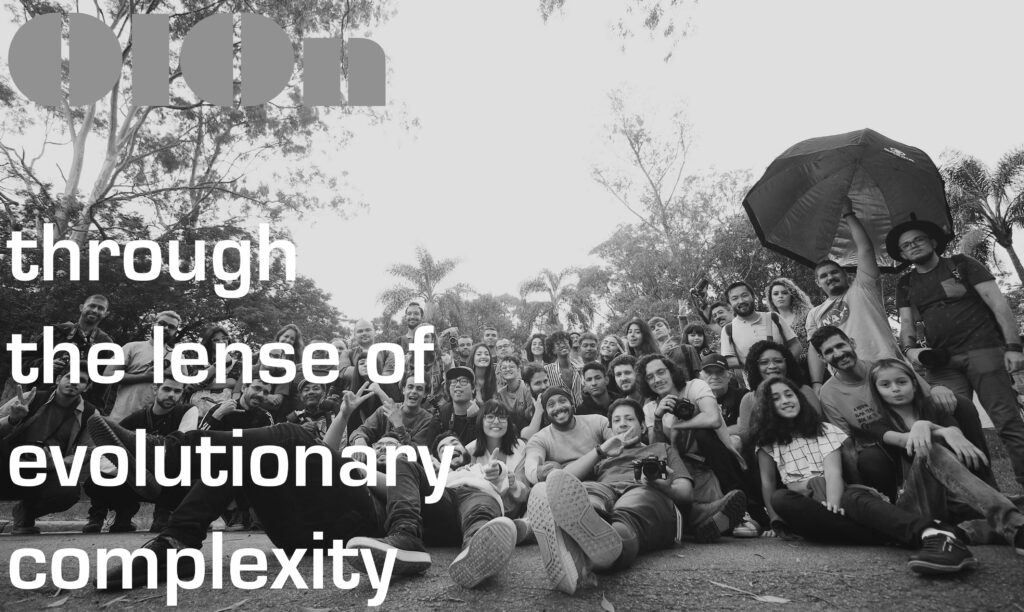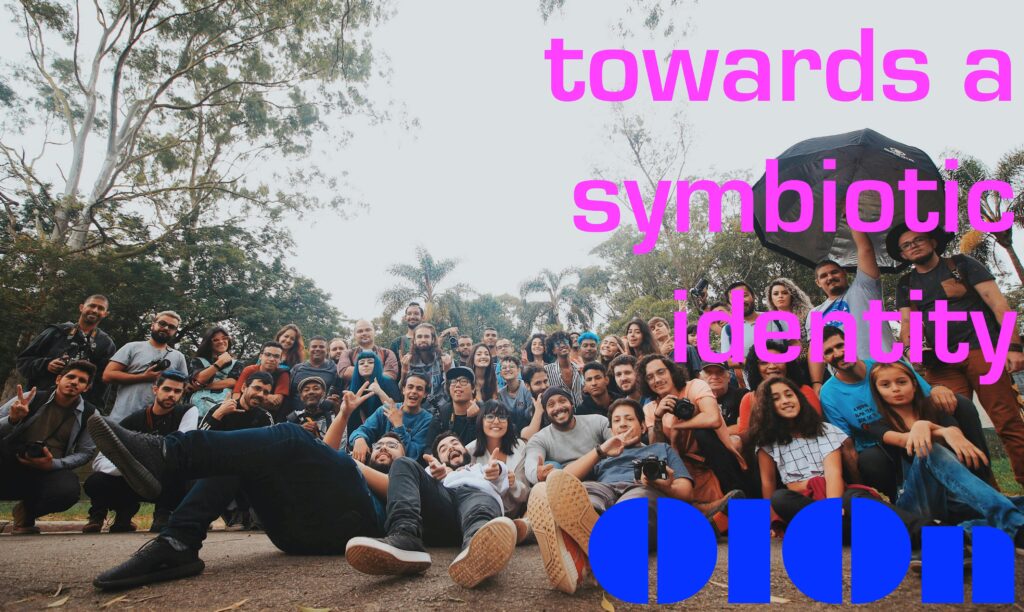OlOn Schemas of Work Thought
OlOn me you Πolis
Explore the dynamics of societies and communities, examining the interconnectedness of individuals within the broader framework of our everyday lives in a definition of Πolis as a political space comprised of active human subjects
Π O Λ I S
◯|◯ɴ's 'ΠOΛIS' defines the citizen of direct democracy as enjoying accumulatively personal, social and political freedom, autonomy & autopoiesis ⦶ Welcome to a post-statocentric world! ◌ where ecumenical cosmocitizenship occurs, by defining the citizen of The City and the citizen of The Kosmopolis.
… existing Symbiotically involves interchanging the role of the Hero & the Dragon, trying to rescue ourselves from ourselves …
… cultivating the Ecumenic Cosmopolitan Citizen
Revolutionise Language Education
Empower Learning
Enhances Cultural Literacy
Promote Lifelong Learning
OlOn proudly introduces ‘ecuPolis‘, an innovative Schema of Work that reimagines early years education through the lens of complexity science and the timeless principles of Ancient Greek direct democracy.
Designed for young learners (ages 3-5), ”ecuPolis‘ aims to cultivate personal, social and political freedom, autonomy and autopoiesis within a contemporary perception of active citizenship.
What is ‘ecuPolis’?
‘ecuPolis‘ is more than an educational program; it is a transformative journey that nurtures the citizen of both the City and the Kosmopolis.
By embracing symbiotic collaboration and rejecting linear social evolution, ecuPolis presents our social realities as interconnected plateaux within a complex system.
This schema fosters a holistic understanding of self and society, where each child learns to navigate the dynamics of a post-statocentric world.

Intent
Our Ethos
What is your shared vision for your Curriculum offer?
‘ecuPolis’ aims to lay the foundation for a complex, dynamic understanding of the world in young learners.
By emphasising subjectivity, empathy and creativity, we prepare children to be ecumenical cosmocitizens who thrive in a diverse and interconnected society.
provoking Thinking
The ecuPolis Schema aims to develop symbiotic collaboration and active citizenship in young learners by integrating complexity science and subjectivity. Our vision is to create a curriculum that fosters personal, social, and political freedom, autonomy and autopoiesis.
Our curriculum is designed to explore the dynamics of societies and communities, examining the interconnectedness of individuals within a broader framework. The ecuPolis Schema prepares children to navigate and thrive in an interconnected world.
By integrating classical and post-modern pedagogies, we aim to create a learning environment that values inclusivity, intercultural understanding, and ecumenical consciousness. The ecuPolis Schema fosters a holistic understanding of social realities and prepares children for active, engaged citizenship.

Implementation
Our Method
What support will be required to deliver the Schema?
Our approach integrates hands-on learning experiences, dualistic opposite concepts and interdisciplinary exploration.
Educators serve as non-directive facilitators, guiding children through activities that stimulate consciousness and holistic awareness of their social realities.
generating Cultural Capital
Educators will receive training in non-directive teaching methodologies and complexity science. Ongoing professional development and access to specialised resources will ensure they are equipped to deliver the schema effectively.
Collaborative workshops and planning sessions will be organized to help teachers integrate the schema’s activities into their daily teaching practices. Support from experienced mentors will be provided to ensure consistency and effectiveness in delivery.
A dedicated support network, including interdisciplinary experts, will be established to assist educators in implementing the schema. Online platforms and forums will offer continuous resources, lesson plans and opportunities for sharing best practices.

IMPACT
Our approach
How will you evaluate the impact of your Curriculum?
The impact of the ‘Πolis’ Schema will be evaluated through a combination of formative, progressive and summative assessments.
Regular feedback from teachers, parents and students will be collected to gauge progress and make necessary adjustments.
fostering Change & Democracy
We evaluate the curriculum’s effectiveness through continuous assessment, focusing on meaningful outcomes that enhance children’s personal, social and intellectual development, setting the stage for lifelong learning and active citizenship.
A comprehensive evaluation framework will be used to track the effectiveness of the schema. This will include observational assessments, standardized tests and qualitative feedback, ensuring a holistic understanding of its impact on children’s development.
Continuous monitoring and periodic reviews will be conducted to ensure the schema exceeds National Curriculum needs. By analysing qualitative, quantitative and mixed-methods data, we will measure the schema’s success in fostering active citizenship and symbiotic collaboration in young learners.
Why choose US
nurture > NATURE

- Holistic Curricular Coverage
- Dynamic, Emerging Enquiry
- Interdisciplinary Exploration
- Ethical, Future-Focused Engagement
Our Schema of Work covers a broad range of contemporary issues, ensuring a thorough and balanced education in critical and creative thinking, as well as around Early Subjectivity of Thought.

We explicitly integrate diverse enquiry types, promoting hands-on, exploratory experiences that focus on a specific problem, approached from abstract, pictorial & concrete perspectives.

Our Schematic lessons emphasise the interconnections between various knowledge fields, fostering a holistic understanding of our personal and social reality.

We promote ethics to navigate an increasingly complex, interconnected future.
Our curricula are designed facilitate existence reach its potential.

Core Methodologies
- Complexity Pedagogy
- Complementarity Pairs
- Criticality & Creativity
- Subjective Thinking
Non-linear Understanding
recognises that learning is dynamic and interconnected
Emergence
focuses on how complex systems arise from simple interactions
Dialectical Becoming
opposites as complementary, balance via communication
Synthesis & Integration
synthesis of opposites as complementary pairs
Analytical Reflection
epi-analysis, questioning assumptions, evaluations
Creative Problem Solving
expressive freedom for creative ideas and solutions
Multiple Perspectives
values diversity of individual experiences and viewpoints
Personal Insight
exploring personal insights, subjective perspectives and contributions


Explore ‘ecuPolis’ with OlOn and be part of the future of early childhood education.

Complexity
Embrace a complex nature of knowledge and learning

SUBJECTIVITY
Expand perspectives that shape our understanding

CRITICALITY
Foster a culture of questioning and analytical thinking

CREATIVITY
Encourage innovative thought and expression

DUALITIES?
Value diverse and complementary perspectives

AESTHETIC
Appreciate the beauty inherent in knowledge and creation

COSMOPOLIS
Glocally interconnected border transcendance
WE SUPPORT THINKERS
OlOn limited cOnsUltAtIOn lEArnIng crEAtivE cUltUrE prOjEcts
Join us on an intellectual Odyssey, where curiosity knows no bounds and the pursuit of knowledge takes on new and exciting dimensions

